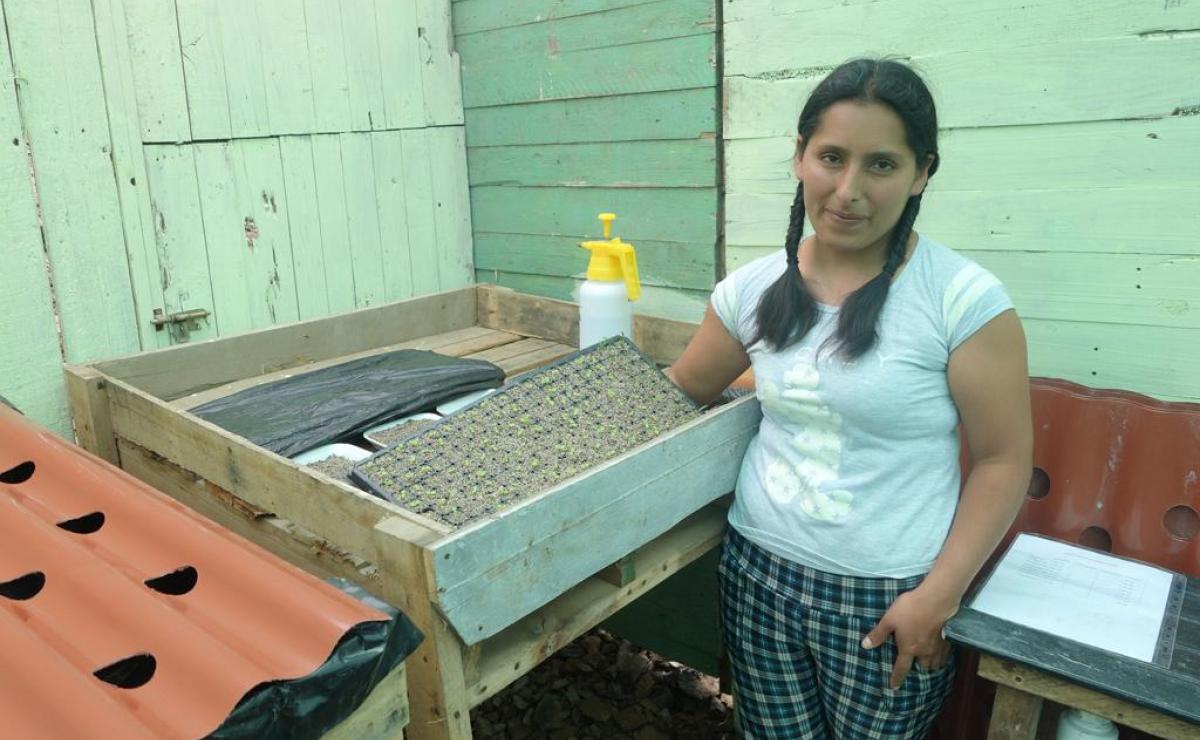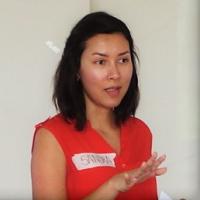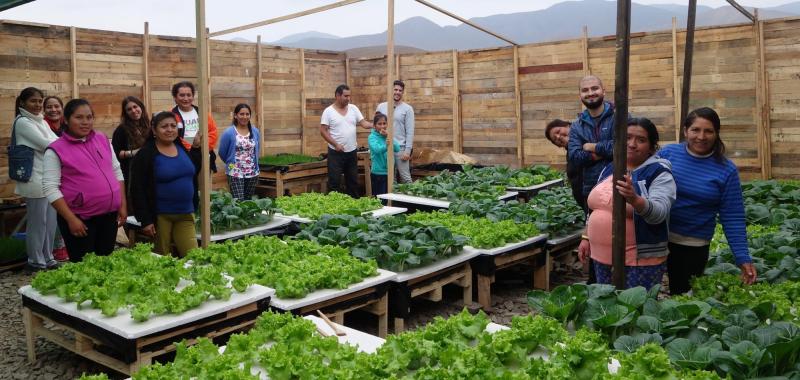Lima is known as the culinary capital of South America and is thriving with some of the world’s most celebrated chefs. Yet, thousands of people, especially children, are suffering from malnutrition. Even though Peru is a major exporter of fruits and vegetables, nutritious food is not accessible for all families in urban slums.
Hydroponics is a soilless cultivation technique that enables plant growth in areas that are non-fertile, arid or urban with limited space. It saves resources and is cost efficient (90% less water, ¼ of space required compared to traditional agriculture). In the slums of Lima, Peru, WFP is equipping vulnerable urban communities with the knowledge, expertise and instructions on how to construct tools to grow hydroponic, nutritious food – and establish the base for additional income activities.
The pilot operated across three districts and provided more than 200 vulnerable women with opportunities and tools to grow their own food in the desert-slums. Many of which now use it to grow vegetables to diversify their families diet and some also started selling their produce as extra source of income. Since early 2018, the project is being rolled out and integrated into programs of local municipalities to reach more people.
Having identified the optimum teaching and cultivation techniques, WFP is now establishing a structure for scale-up and identifying sales and distribution channels. One key aspect of the project is the focus on creating business opportunities, specifically for vulnerable women who have started creating and running their own communal orchards. The project aims to:
- Teach and promote the growing of vegetables using hydroponics technology;
- Diversify the consumption of vegetables in the diet of the supported families;
- Enable families in food insecure areas to improve their nutrition intake;
- Educate and support women in vulnerable communities start their own business opportunity;
- and establish a train-the-trainer module and supporting tools such as a smartphone app.
During pilot phase, several trainings were carried out; firstly, teaching participants hydroponic vegetable cultivation techniques and secondly, tackling key topics such as pest control and crop diversification. To ensure the sustainability of the project, a selection of people from local organisations were trained as ‘hydroponic coaches’, ensuring the sharing of tools and knowledge beyond the initial pilot location.
To further expand the project, a basic smart phone application is under development as part of the H2Grow platform. The digital H2Grow platform will support coaches provide step-by-step tutorials and facilitate an online exchange of ideas, advice and access to an expert network.

Merly and her family had to leave their home in the Andes to seek refuge in Lima. Used to the fertile lands of her hometown, Merly struggled to provide nutritious food to her children. The desert slums, where conditions are harsh and water scarce, seemed like an impossible place for grow food. Eager to provide a better future to her children, Merly was one of the first entrepreneurs to give hydroponic growing a chance. In 2016, she worked with WFP and local innovators to start the first gardens in the urban slums, which grew quickly with the hands of many other eager entrepreneurs. In a few months, the community not only had enough crops to feed their families, but also had enough surplus to sell vegetables and increase their income. Today, Merly is still part of the H2Grow revolution working with the local municipality as a hydroponic trainer and sharing the value of hydroponic growing with others in her community.
Meet the team




